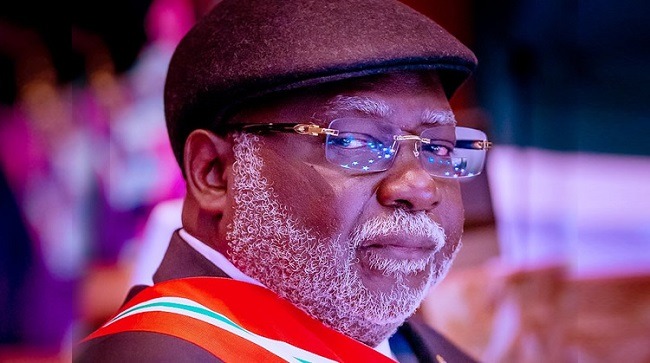Seven months after the conduct of the 2023 general elections, the various tribunals handling petitions from defeated candidates have dismissed 712 cases.
Also, 179 candidates have withdrawn the petitions they filed against their opponents before the election petition tribunals across the federation.
These facts were revealed yesterday in Abuja by the Independent National Electoral Commission (INEC), which said 891 petitions of 1,196 on 2023 polls had so far been either dismissed or withdrawn.
Contrary to claims in some sections of the media, INEC said the loss of 74.4 percent of the petitions confirmed the credibility of the 2023 elections it conducted for state and national legislators, governors and president.
The commission also released a status report on the outcome of petitions in relation to the presidential, governorship, National and State House of Assembly elections to confirm the credibility of the nationwide elections.
INEC said it cannot be held responsible for election petitions which arise from party primaries.
The electoral commission made the clarifications following a report that 94.4 percent of all the strands of elections failed at the tribunals.
It said the mere filing of petitions does not affect the integrity of the recent elections conducted by INEC
On the high number of petitions filed by litigants, the commission said they had the right to do so under the law.
INEC’s defence of the election may have been informed by a recent news report entitled: “INEC’s credibility sinks as 94 percent contested posts await tribunal.”
Its national commissioner and chairman of the Information and Voter Education Committee, Sam Olumekun, in a statement he issued in Abuja, said the report contained inaccuracies and called for a more balanced perspective on the matter.
He said, “Of 1,196 petitions, 712 were dismissed and 179 withdrawn. This means that in 891 cases (74.4 percent), the tribunals found no merit in the petitions and affirmed the result of the elections conducted by INEC.
“It is surprising how the mere filing of petitions constituted a blow on the integrity of the recent elections conducted by INEC when in fact they constitute an integral part of the democratic process.”
According to him, “As of Monday, 16th October, 2023, of 82 governorship election petitions, 72 (87.8 percent) were either dismissed or withdrawn by the petitioners. For the senatorial elections, 146 petitions were filed, of which 100 (68.5 percent) were dismissed or withdrawn.
“For the House of Representatives, 413 petitions were filed out of which 309 (74.81 percent) were dismissed or withdrawn while for State Houses of Assembly, 550 petitions were filed, of which 468 (82.4 percent) were dismissed or withdrawn.
“A comparative analysis would have addressed the deliberate effort in the report to portray the 2023 General Election as regressive on account of litigation without empirical evidence.”
INEC said it was misleading to claim that 94% of the elections it conducted failed.
“The said report analysed the total number of petitions as if they were filed against the outcome of the election in 94% of all the elective positions without considering details of the cases.
“Multiple petitions were filed by candidates and political parties as petitioners in a single Constituency. For example, in one state in the South South geopolitical zone of the country, eight petitions were filed challenging the governorship election out of which seven were dismissed and one withdrawn.
Providing a detailed clarification on the situation, Olumekun pointed out several key issues with the report. Firstly, he highlighted that the report had inaccurate figures regarding the number of constituencies where elections were conducted in 2023.
He said the correct figures were 1,491 constituencies across the country, consisting of various positions.
Second, he said the report incorrectly blamed INEC for pre-election cases arising from political party primaries, and averred that these cases are intra-party primary election matters that do not involve INEC.
Olumekun also pointed out that many litigants in Nigeria file election petitions for various reasons and said the fact that 74.4 per cent of the petitions have been dismissed or withdrawn demonstrated that the majority of them lacked merit.
Furthermore, he explained that the report’s analysis of the total number of petitions was misleading, as it did not consider that multiple petitions can be filed for a single constituency, which distorts the percentage calculation.
UN Demands Accountability In Nigeria’s Elections
Meanwhile, the United Nations (UN) has called for accountability in Nigeria, especially in the area of election conduct and participation.
The Office of Internal Oversight Services for the UN Stated this when its members visited the headquarters of the New Nigeria Peoples Party (NNPP) in Abuja.
The leader of the three-member team, Yuen Ching Ho, said they were in the country as part of their oversight duty on peace and security concerns in West Africa and the Sahel, adding that they want accountability in Nigeria.
“Our office has the responsibility of providing oversight for different UN programmes, activities and offices with the aim of serving accountability and lessons learned in the processes.
“So our focus is on the work and the support of the UN and how well they have addressed the needs of the government in the countries they work in,” she said.
She added that they were in Nigeria this week to meet with important stakeholders such as the NNPP to find out how the party has engaged with UN agencies on election related matters and the challenges the party has faced.
The national vice chairman of the NNPP, Prince Onu Nwaeze, said the UN should help in the area of deepening democracy.
“Our democracy has shifted from being nascent to full-fledged democracy and sharing ideas from experiences United Nations agencies like yours have gathered from other developed countries will help developing nations like Nigeria to deepen our democracy,” he said.





